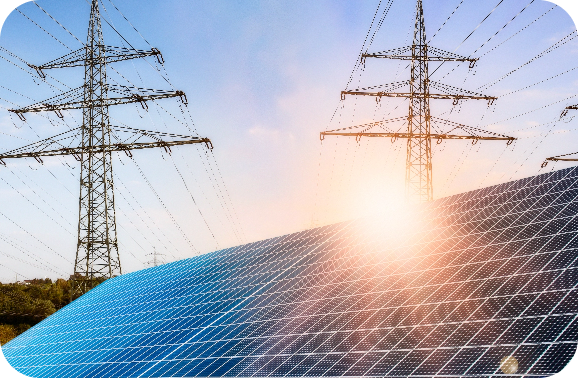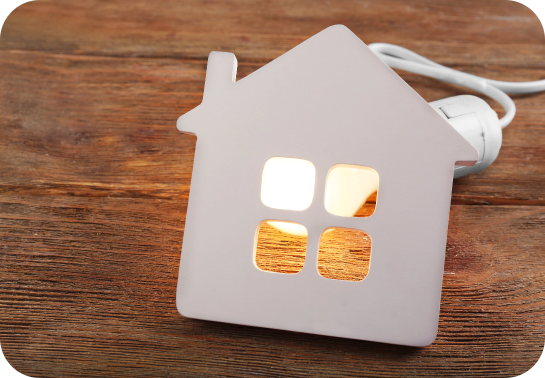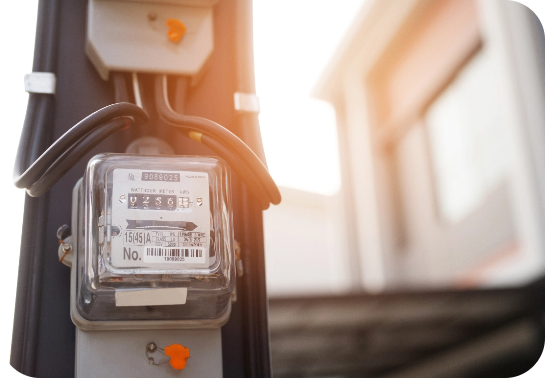Solar Versus Traditional Electric: Pros and Cons

As solar energy becomes a more accessible and popular option, people often compare solar vs. electricity to see which might be the better option. Solar energy is sustainable, with cost-saving advantages and government incentives benefits, while traditional electricity provides an established infrastructure and relative reliability.
Read on to learn more about the pros and cons of solar vs. electricity, the cost-effectiveness of solar energy, and more to decide which type is right for your property.
Solar Power Cost Vs. Regular Electricity Cost
Solar panels and traditional electricity are two popular options for powering homes. But, to choose between solar vs. electricity, it’s essential to know the pros and cons of each before making a final decision. Here are a few advantages and disadvantages of electricity vs. solar energy.
Traditional Electric Energy
Pros
Cons
Solar Energy
Pros
Cons


Calculating Savings Using Solar Power
Before making the switch to solar, many people want to calculate the potential cost-effectiveness of solar energy. The best way to determine possible monthly utility savings is to get a quote from a professional solar installation company like Axia Solar. For a more general estimate, you can use our solar calculator.
Are Solar Panels Cheaper?
When it comes to the debate of solar vs. electricity, many wonder, “Are solar panels cheaper?” Here’s a general cost comparison between utility electricity vs. solar energy.
Installation
Operating and Maintenance Costs
Government Incentives and Tax Credits
How Solar Systems Help Homeowners Save
Replacing electricity from the grid with solar electricity you produce on your roof allows you to control your costs over the long term.
Factors that Affect the Price of Regular Electricity
While regular electricity is the more used option, it’s not a completely foolproof solution. Several factors can affect the price, which is why users usually have widely fluctuating bills every month. Some of these factors include:

Cost-Effectiveness of Solar Energy
When choosing between solar vs. electricity, many people look at solar energy’s environmental advantages and cost-effectiveness of solar energy to help finalize their decision. There are several ways that solar panels can be more budget-friendly in the long run.
Reduced Utility Bills
Using solar panels reduces the amount of electricity you need from the solar grid, meaning that it’s possible you could lower your electric bill as you generate and use more solar energy.
Lifetime Savings
Many solar panels can last at least 25 years. Over time, the potential savings on your utility bill could far exceed the initial investment into the solar system.
Added Home Value
Solar panels can increase the value of your home, which is beneficial if you are considering selling anytime soon. Homes with solar panels can sell faster and for more than homes without.
Get in Touch With a Solar Installer in Your Area
If you’ve finished comparing solar vs. electricity and are ready to harness the sun’s power for your home’s energy source, the team at Axia Solar is here to help. We specialize in providing high-quality solar panels and exceptional customer service to create a home solar system that meets your unique needs. Take the first step toward a brighter future by contacting our team today.